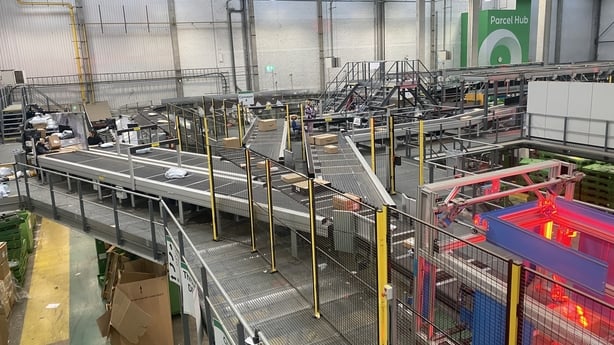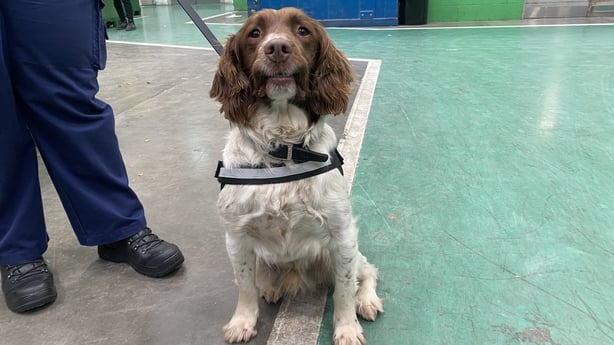As Black Friday approaches, Revenue's customs operations are warning online shoppers of the risks of deals that seem too good to be true, where purchasers risk buying counterfeit goods or facing additional charges such as customs duty and VAT.
To the end of October this year, Revenue teams based at An Post's Dublin Mail Centre have seized around €3.8m worth of counterfeit goods and €12m worth of drugs.
Revenue maintains a presence in mail centres across the country in order to deal with customs related matters to intercept illegal items, such as drugs and counterfeit goods.
Last week the Revenue teams at the Dublin Mail Centre, which sorts mail for distribution around the country, detected 12kg of cannabis worth around €245,000 and counterfeit goods worth almost €25,000.
In the year to October 31, they seized almost 745kgs of drugs with an estimated value of €12m at the centre.
According to figures provided during a briefing by Revenue's Frontier Management Branch at the Dublin Mail Centre, that is more than twice the quantity and value of drugs detected by their teams there up to the same time last year.

Almost 360kgs of drugs with an estimated value of €5.3m were seized in the year to October 31, 2023.
The team also seized €3.8m of counterfeit goods, some 17,909 items, at the An Post sorting centre up to the end of October this year.
That is more than the total number of counterfeit items detected by Revenue teams at all frontier locations, such as at ports, airports and mail centres, up to the same time last year - 13,235.
Teams at the Dublin Mail Centre also seized 121,000 cigarettes and 76kg of tobacco, with a combined value of €165,000 up to the end of October, and over 288,000 medicinal products with an estimated value of €546,500.
Detector dogs are one of the tools used to search for cash, drugs or tobacco products.

According to Revenue, cannabis and medicines are the most common items detected by their teams at the centre.
"Drugs can be concealed in any type of parcel, they can be concealed in toys, in books, in foodstuffs," Maureen Dalton, Head of Revenue's South East Frontier Management Branch, said.
"Many of the counterfeit goods that are detected and detained are addressed to individuals who have purchased them via the internet, however larger consignments are also detected in shipping containers," Ms Dalton said.
Recently seized counterfeit goods were also on display at the Dublin Mail Centre, and among were them pairs of fake Nike trainers which were originally part of a consignment of 9,384 pairs detected by Revenue Officers at Dublin Port a few weeks ago.
The full consignment of counterfeit Nike trainers seized had an estimated value of €1,736,040.
"Concealment methods and techniques can become more inventive and elaborate, so its so important that we are agile and responsive to that threat and that we adapt our methodologies as we build on our experiences across all of the smuggling threats," Ms Dalton said.
Ms Dalton also had this warning for online shoppers and Black Friday approaches and pre-Christmas shopping gets into full swing.
"Where the price of goods advertised seems attractively low, this may be because tax and duty have not been included in the price advertised or the goods may be counterfeit," she stated.
Customs Duty on goods worth over €150 and import VAT charges apply to items bought outside the EU.
Ms Dalton pointed out that not all web addresses that have the .ie domain are Irish websites, and she urged online shoppers to check a website's "about us" or "contact us" sections, and establish where a company is based before buying from them.
She also warned that counterfeit goods, such as branded clothing, handbags, trainers, cosmetics and mobile devices, are often poor quality and do not conform to accepted safety standards and may be harmful to consumers.







